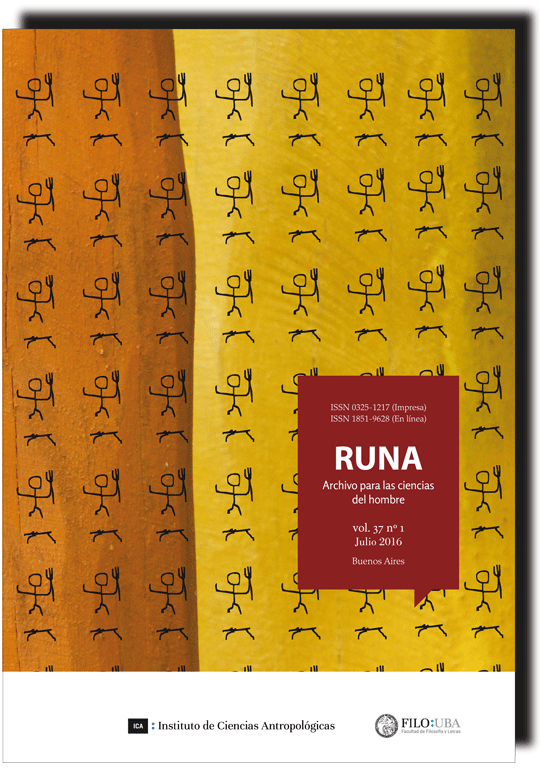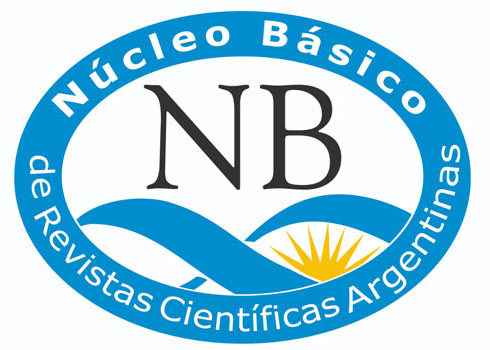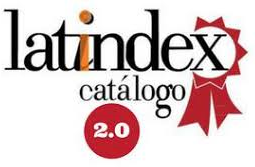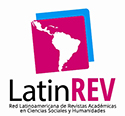Políticasde transferência de renda. Exportando Expectativas em Desenvolvimento
Resumo
Neste artigo, eu vao a reconstruir os contextos de antecipação em que foram implementados programas de transferência de renda no México. Procampo em 1994, tem como objetivo ajustes estruturais para fazer dele sector agrícola mexicano viável no Acordo de Livre Comércio da América do Norte (NAFTA). Em 1997, o programa de transferência de renda Progresa, começou a condicionar o comportamento de as mães de crianças pobres, ao mesmo tempo que lançou um futuro a longo prazo em que os seus beneficiários iria acumular capital humano para entrar no mercado de trabalho formal. Dado que estes objectivos não pôde ser calculado nem empiricamente nem racionalmente a priori, eu uso o conceito de "futuro imaginário" para a sua análise. Deixando de lado neste artigo as diferentes dotações destes dinheiros, concluo que os programas de transferência de renda que seguem o modelo mexicano, estao promovendo as mesmas expectativas de ficção de uma inclusão.Downloads
Referências
AGUDO SANCHÍZ, Alejandro. 2011. Mejoras Privadas, Beneficios Colectivos: La Producción y Subversión de Regímenes Globales de Política Social en Chiapas. En (Trans) Formaciones del Estado en los Márgenes de Latinoamérica. Imaginarios Alternativos, Aparatos Inacabados y Espacios Transnacionales. A. Agudo Sanchíz y M. Estrada Saavedra, (Ed.) México: El Colegio de México-Universidad Iberoamericana.
AGUDO SANCHÍZ, Alejandro. 2012. Consultorías (Pos) Modernas. La Mímica del Positivismo y la Construcción del Conocimiento en la Evaluación de Programas Sociales. Estudios Sociológicos, XXX: 88.
ASERCA. 2012. Programa de Coberturas. En: www.aserca.gob.mx/sicsa/coberturas/sublistacoberturas1.asp. Accedido el 15 de Enero de 2013.
AUTOR. 2015. “Supporting a Counterfactual Futurity: Cash Transfers and the Interface between Multilateral Banks, the Mexican State, and its People”. The Journal of Latin American and Caribbean Anthropology.
AUTOR. 2013. Promissory Prestations: A Yucatec Village between Ritual Exchange and Developmet Cash Transfer. PhD unpublished dissertation. Johns Hopkins University.
AUTOR. 2011. Promesas rituales y compromisos de libre mercado. Regímenes de futuro en un pueblo de Yucatán. Cuicuilco 18(51).
BID. 2012. Accessed on January 12, 2012. www.iadb.org/en/about-us/departments/biographies,1347.html.
CEPAL. 2014. http://interwp.cepal.org/sisgen/ConsultaIntegrada.asp?idIndicador=2268&idioma=e
Accedido el 3 de Agosto de 2015.
CONEVAL. 2015. Anexo Estadístico 2010-2014. En: www.coneval.gob.mx/Medicion/MP/Paginas/AE_Pobreza-2014.aspx. Accedido el 1 de Agosto de 2015.
DE JANVRY, A. y SADOULET, E. 2004. Conditional Cash Transfer Programs: Are They Really Magic Bullets? Department of Agricultural and Resource Economics: University of California at Berkeley
DE JANVRY, A.; SADOULET, E; SOLOMON, P y VAKIS, R. 2006. Uninsured Risk and Asset Protection: Can Conditional Cash Transfer Programs Serve as Safety Nets? Social Protection. The World Bank. Discussion Paper NO. 0604. Washington DC: The World Bank.
DUGGER, Celia. 2004 . To Help Poor Be Pupils, Not Wage Earners, Brazil Pays Parents. New York Times. www.nytimes.com/2004/01/04/world/to-help-poor-be-pupils-not-wage-earner-brazil-pays-parents.html. Published January 03, 2004, accecced May 23, 2013.
FERGUSON, James. 2015. Give a Man a Fish: Reflections on the New Politics of Distribution
Durham, Duke University Press.
FISZBEIN, Ariel and Schady, Norbert. 2009. Conditional Cash Transfers. Reducing Present and Future Poverty. The International Bank for Reconstruction and Development / The World Bank. A World Bank Policy Research Project.
FOX, Jonathan y Libby HAIGHT (2007). ‘El acceso público a las evaluaciones externas de los programas sociales del gobierno’, en Jonathan Fox, Libby Haight, Helena Hofbauer y Tania Sánchez (coords.), El derecho a saber: Balance y perspectivas cívicas, México: Fundar/Woodrow Wilson Center, www.fundar.org.mx
BARRIENTOS, A., HANLON, J. and HULME, D. (2010). Just Give Money to the Poor: The Development Revolution from the Global South. Sterling VA: Kumarian Press.
KOSELLECK, Reinhart. 2004 [1979] Futures Past: On the Semantics of Historical Time. New York: Columbia
University Press.
LAVINAS, Lena. 2013. 21 ST Century Welfare. New Left Review. Nov- Dec.: 5-40.
LAGARDE, Mylene; Andy HAINES and Natasha PALMER. 2008. Creating Incentives to Induce Behavioural Change and Improve Health: Success and Limitations of Conditional Cash Transfer Programmes, Global Forum Update on Research for Health. 5: 107-111.
LEVY, Santiago. 2008. Good Intentions, Bad Outcomes: Social Policy, Informality, and Economic Growth in Mexico. Washington DC: Brookings Institution Press.
NUSSBAUM, Martha. 2000. Women and Human Development: The Capabilities Approach. Cambridge: Cambridge University Press.
OPORTUNIDADES. 2010. Reglas de Operación del Programa de Desarrollo Humano Oportunidades para el ejercicio fiscal 2012. Diario Oficial (Tercera Sección). Viernes 30 de Diciembre de 2011. México: Diario Oficial de la Unión.
ORENSTEIN, Mitchell. 2008. Privatizing Pensions: The Transnational Campaign for Social Security Reform. Princeton: Princeton University Press.
PROCAMPO. 1994. Decreto de Creación del Procampo. Decreto que Regula el Programa de Apoyos Directos al Campo Denominado Procampo. Publicado en el Diario Oficial de la Federación Lunes 25 de Julio de 1994. México DF: Diario Oficial de la Federación.
PROCAMPO. ND. Vamos al Grano para Progresar. México: Secretaría de Agricultura y recursos Hidráulicos.
SADOULET, E., DE JAVRY, A. y DAVIS, B. 2001. Cash Transfers Programs with Income Multipliers: PROCAMPO in Mexico. World Development. 29 (3) March.
SALINAS DE GORTARI, Carlos. 1978 Public Investment, Political Participation and System Support: Study of Three Rural Communities. Ph.D. dissertation. Harvard University.
Producción y Participación Política en el Campo. México: Fondo de Cultura Económica.
SCHWEGLER, Tara A. 2008. Take it From the Top (Down)? Rethinking Neoliberalism and Political Hierarchy in Mexico. American Ethnologist. 35(4): 682-700.
SCHUMPETER, Joseph A. 2008 [1911]. The Theory of Economic Development: An Inquiry int Profits, Capital, Credit, Interest and the Business Cycle. New Brunswick and London: Transaction Publishers.
SEN, Amartya K. 1999. Development as Freedom, New York: Knopf.
SKOUFIAS, Emmanuel y MCCLAFFERTY, Bonnie. 2001. Is progresa working? Summary of the results of an evaluation by IFPRI. FCND discussion paper no. 118. Washington DC: Food Consumption and Nutrition Division. International Food Policy Research Institute.
STAMPINI Marco y Leopoldo TORNAROLLI. 2013. The growth of conditional cash transfers in Latin America and the Caribbean: did they go too far? No. No. IDB-PB-185
SUGIYAMA, Natasha Borges. 2011. “The Diffusion of Conditional Cash Transfer Programs in the Americas”. Global Social Policy Vol. 11, no. 2/3 (December): 250-278.
TEICHMAN, Judith. 2004. The World Bank and Policy Reform in Mexico and Argentina. Latina American Politics and Society. 46(1): 39-74.
ZEDILLO, Ernesto. 1997. Tercer Informe de Gobierno: Anexo Gráfico y Estadístico: México: Presidencia de la República.

Runa, archivos para las ciencias é uma publicação do Instituto de Ciencias Antropológicas, Facultad de Filosofía y Letras, Universidad de Buenos Aires e é distribuída sob o título Creative Commons Attribution 4.0 International License.
Runa mantém o seu compromisso com as políticas de Acesso Aberto à informação científica, considerando que tanto as publicações científicas como a investigação financiada com fundos públicos devem circular livremente na Internet, gratuitamente e sem restrições.
Os conteúdos e opiniões expressos nos artigos publicados são da exclusiva responsabilidade dos seus autores.



















